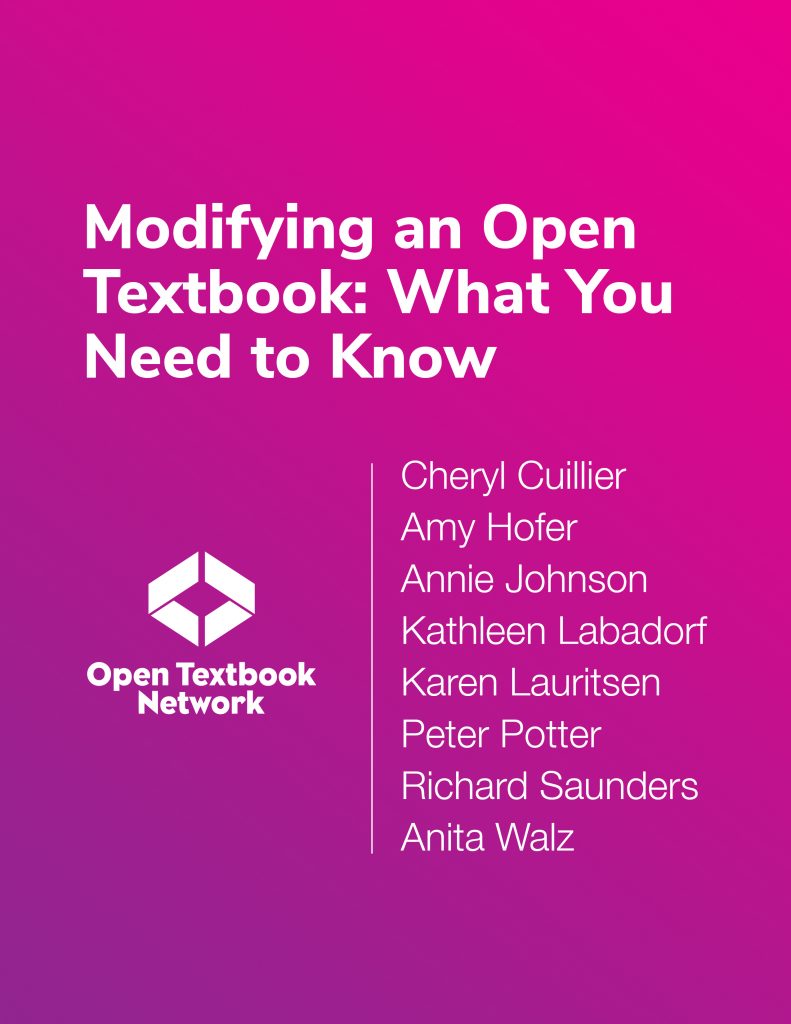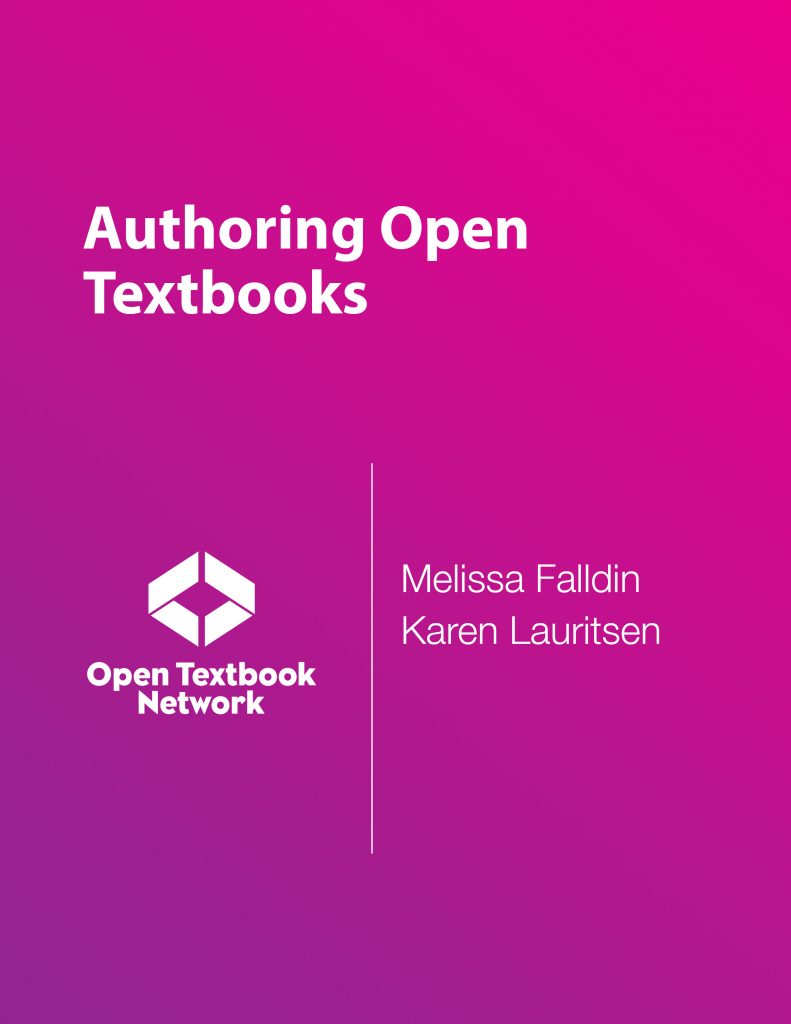April 27th, 2018 from 10:30am to Noon
Andrew Kusak (VT, English, PhD student)
“Cybersecurity, Internet, Users: Legal Rhetoric, Digital Surveillance, and the Material Contexts of Privacy”
April 27th, 2018 from 10:30am to Noon
Andrew Kusak (VT, English, PhD student)
“Cybersecurity, Internet, Users: Legal Rhetoric, Digital Surveillance, and the Material Contexts of Privacy”
April 20th, 2018 from 10:30am to Noon
Sylvester Johnson (VT, Humanities / Religion & Culture)
“Can Robots Make Love?: Artificial Intelligence, Human Identity, and the Life of Things.”
This is a five-step guide for faculty, and those who support faculty, who want to modify an open textbook. Step-by-step instructions for importing and editing common open textbook file and platform types are included. Read it for yourself at: https://press.rebus.community/otnmodify/

April 13th, 2018 from 10:30am to Noon
Tabitha James (VT, Business)
“Organismic Integration Theory to Explore the Associations between Users’ Exercise Motivations and Fitness Technology Feature Use”
April 6th, 2018 from 10:30am to Noon
Quran Karriem (Duke, Computational Media, Arts & Cultures, PhD candidate)
“Embodied Kinesonics: Interface, Transformation and Disappearance”
Abstract
Where does the body end, and the interface begin? When does an interface become an instrument, and what role does virtuosity play when sound production is dissociated from physical causality? With the increasing use of real-time computation in live settings, what is the relationship between process and performance? This hybrid artist talk / demonstration will feature recent projects by sound artist, interface designer and researcher Quran Karriem, who traces the shifting boundaries between bodies, instruments and interfaces across a varied array of emergent hardware and software instruments and performance idioms.
Bio
Quran holds a master of fine arts in sound design from the Savannah College of Art & Design, and a bachelor of music in composition from the University of Georgia. He has extensive software development experience, previously served on the audio technology faculty at American University, and is one of two scholar-artists recruited to inaugurate a new PhD program in Computational, Media, Arts & Cultures at Duke University, where he is a member of the Society of Duke Fellows and develops gestural and sonic technologies as part of the SLIPPAGE performance, culture and technology lab.
This guide is for faculty authors, librarians, project managers and others who are involved in the production of open textbooks in higher education and K-12. Content includes a checklist for getting started, publishing program case studies, textbook organization and elements, writing resources and an overview of useful tools. Read it for yourself at: https://press.rebus.community/authoropen/
